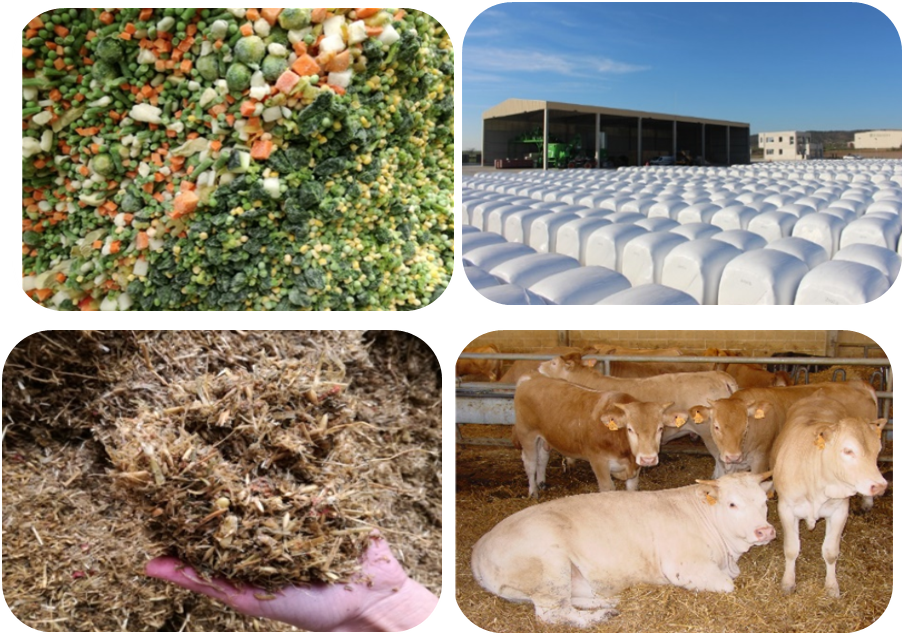
https://ec.europa.eu/eip/agriculture/en/find-connect/projects/bovine-beef-innovation-network-europe
Strategies that can reduce the high cost of feeding are attractive, particularly in the last 5 years. Navarra is a traditional region of vegetable production and there are many vegetable industries. The waste of this industry is used in animal nutrition, particularly in dairy cow farms, but since 2020 there are some beef cattle farmers who are interested in using these by-products in the fattening phase of young animals.
Good Practice implemented by a farmer in Azoz (Navarra, SPAIN).
The farm is a Pirenaica breed farm that raises cows in an extensive system. Calves after weaning (4-6 months of age) are fattened in an intensive system until 11-12 months of age. Due to the high costs of traditional raw materials (barley, soya,..) used in fattening period, the farmer decided to try alternative feeds.
By-products from the vegetable industry (carrots, peas, lettuce, etc.) are ensiled in pellets. After a nutritional analysis, they are formulated in the daily ration for fattening animals.
The use of by-products of vegetable industry as feedstuffs has many advantages from the farmer's point of view:
- It reduces feed costs
- It contributes to the circular economy and waste reduction.
- it reduces digestive disorders in fattening animals.
- these feedstuffs are a source of antioxidants that are transmitted to the meat.
Impact on socio-economic resilience
This production system has a greater resilience due to inputs, which are based on the territory’s natural resources and sub products of other industries of the territory. There is consequently a lower incidence of volatile market prices.
Impact on animal health and welfare
The breeds used are autochthonous (adapted to local life conditions).
Impact on production efficiency and meat quality
Studies of Public University of Navarra (UPNA) had demonstrated that this feeding system does not affect the meat quality.
The meat is produced into the Ternera de Navarra IGP.
Impact on environmental sustainability
All the feedstuffs are local, so that leads to a lower carbon footprint, as well as the use of by-products from the canning industry contributes to the circular economy and waste reduction.
AUDIO VISUAL MATERIAL

Link to a video (in Spanish): https://www.youtube.com/watch?v=yVt2UMgaTeM&t=52s
Farmer comment
Javier Iraizoz (Azoz- Navarra)
"The experience has been enriching. At this moment a consumer tasting is going to take place at the Public University of Navarra, which is going to put in value this innovation."
Further information